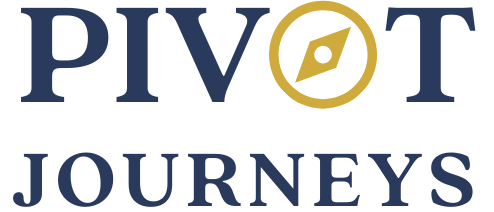Using Empathy In Your Job Search & Career Pivot During Covid.
I spoke to a women yesterday who summed it up:
This COVID-19 thing has really put a wrench in my career pivot plan, hasn’t it?
If you were embarking on or in the midst of navigating a career pivot or job search, I’m sorry. It’s really hard when forces outside of your control mess with your plan.
We’ve spent a lot of time over the last few weeks thinking about how job seekers and career changers adapt to this new reality and how you can still make progress in navigating your next career move.
There are two ingredients we need to add in a job search taking place during COVID-19: empathy and curiosity.
This post concentrates on empathy with some examples and strategies that reflect the moment. Done right, they also might increase your response rate from employers or networking contacts.
First, let’s step back to understand what’s going on for employers right now.
Most of us are feeling some level of anxiety and uncertainty because of the public health emergency. It's important to remember that the hiring manager at the job you’re excited about (and all the people in your network, really) are probably feeling the same way.
Many HR departments are swamped with the sudden transition to remote work, including IT compliance and tricky personnel issues that must now be dealt with remotely.
This doesn't mean you shouldn't pursue opportunities and connection, but try not to get discouraged if response times are longer, or you receive fewer responses to your networking emails.
Recruiters and hiring teams are adjusting as well. Be patient, be persistent, and practice empathy for others in your network.
How do you use empathy as a strength when connecting with others to help your job search move forward?
One of my clients specializes in employee communications—she’s the person who writes the memos and talking points her leadership uses to communicate organization-wide.
Last week, we talked about how effective employee communications are especially important in a moment like this, and how that means her strengths are needed now more than ever.
Feeling inspired, she wrote a post on LinkedIn with her advice for leaders and managers on effective employee communications given COVID-19. The post garnered comments and reactions giving her some additional exposure.
She also used it to move her job search forward.
She had been waiting for a second round interview response and it had been two weeks since she last heard from them. She reached out via email, but made the check in mostly about her post that she thought might be helpful for them. Because she was able to share that post with genuine empathy, it connected - they got back to her within a few hours.
Here’s her email:
Subject: Best Wishes & Employee Comms for COVID-19
Hi Carol,
I hope all is alright with you, your family and the [organization's name] community. I’ve been following the great things you all are doing [insert something you know they may be doing for employees or for helping first responders etc if applicable].
I would imagine your interview processes has had to be put to the side to focus on more pressing needs around COVID-19. In this tough time, I wanted to share an article I wrote last week on LinkedIn with advice on what organizations can do around employee communications in this moment. I’m sure you have similar plans underway but I wanted to share in friendly partnership and wish safety and health to you and yours!
[Title & Link for Content or Value Add]
Best,
[Name]
Most people have the ability to add value in some way: think of your strengths, and what you know can be useful to an organization or a person in a crisis. Let your empathy and helpfulness flow from there.
Ask Yourself: what might you be able to do or share that would be helpful and well received?
Most times, but particularly in times like this, fortune favors the person who takes initiative to learn, help, or support.
Finally, take some of that empathy for others and point it inward.
If you’re like us, we’ve been procrastinating way more than usual. There’s a good reason for it – it has nothing to do with self-control. As Charlotte Lieberman says, procrastination is a coping mechanism to help us with, “boredom, anxiety, insecurity, frustration, resentment, self-doubt and beyond.” Sound familiar right now? All of these emotions are cycling through us these days—sometimes simultaneously.
Know that there’s a reason for it, and try to set small goals and wins for yourself in your career exploration and search to keep your motivation going. There’s real motivational science behind setting micro-goals and celebrating the small wins.
If you’re a naturally empathetic person, your strengths can help you shine right now and build powerful connections with others.
You might also feel more drained and stressed given how much ‘feeling’ you are doing for others.
Ask Yourself: ‘what would my best friend tell me I need right now?’
Whatever the answer, practice empathy and give yourself what you need to manage this time. Connect to what motivates and inspires you and use it as a bridge to increase understanding of others in your life.
